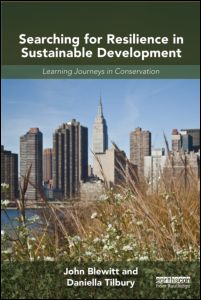Events
Building Livable Cities and Healthy Communities: Policy and Planning Approaches for Resilience and Sustainability
October 02, 2013 // 3:00pm — 5:00pm
Chronic diseases have surpassed communicable diseases as leading causes of death worldwide. Enviromental and policy conditions that enable unhealthy diets, physical inactivity and high rates of tobacco underly increasing chronic disease rates. This makes good health in many communities with developing economies, difficult – if not impossible – to achieve.
ChangeLab Solutions is pioneering a new approach to public health advocacy by building collaboration between public health officials and other local government agencies. Often called health in all policies or shared governance, this collaborative governance model is garnering attention at the World Health Organization and other nongovernmental organizations dedicated to addressing the social determinants of health and fostering healthy, resilient and sustainable environments in which the healthy choice is the easy choice.
By creating good laws and policies that link housing, education, jobs, and the built environment to healthy outcomes – and by working with communities to implement them – ChangeLab Solutions is helping to create places where people have easy access to affordable and healthy food, safe and easily accessible places to live and play, plenty of opportunities to bike, walk, or take transit, fresh water, and clean air indoors and out.
ChangeLab Solutions works with neighborhoods, cities, and states to transform communities with laws and policies that create lasting change. Its unique approach, backed by decades of solid research and proven results, helps the public and private sectors make communities more livable, especially for those who are at highest risk because they have the fewest resources.
A panel of experts will discuss innovative law and policy solutions for creating healthier neighborhoods, cities. Speakers will identify environmental change solutions for diseases like diabetes, obesity, asthma, and lung cancer. This seminar will showcase the latest in research and practice on how best to incorporate legal and policy tools into public health strategies.
LOCATION:
5th Floor, Woodrow Wilson Center
Event Speakers List:
-
Vice President for Strategic Engagement, ChangeLab Solutions
- Jon L. Gant //Director of Office for Healthy Homes and Lead Hazard Control, US Department of Housing and Urban Development (HUD)
-
Senior Advisor, Nutrition and Physical Activity Initiative, Bipartisan Policy Center
-
Visiting Professor, School of Public Health and Health Services, The George Washington University
For more information:
http://www.wilsoncenter.org/event/building-livable-cities-and-healthy-communities-policy-and-planning-approaches-for-resilience



 29 August 2013: The 2012 Annual Report of the International Center for Agricultural Research in the Dry Areas (ICARDA) notes that despite significant challenges due to the on-going conflict in Syria, the Center has made significant achievements in translating research into action and policy impact, highlighting its leadership in the high-level international conference on Food Security in the Dry Lands, as well as enhanced partnerships with Canada and South Asia.
29 August 2013: The 2012 Annual Report of the International Center for Agricultural Research in the Dry Areas (ICARDA) notes that despite significant challenges due to the on-going conflict in Syria, the Center has made significant achievements in translating research into action and policy impact, highlighting its leadership in the high-level international conference on Food Security in the Dry Lands, as well as enhanced partnerships with Canada and South Asia.















